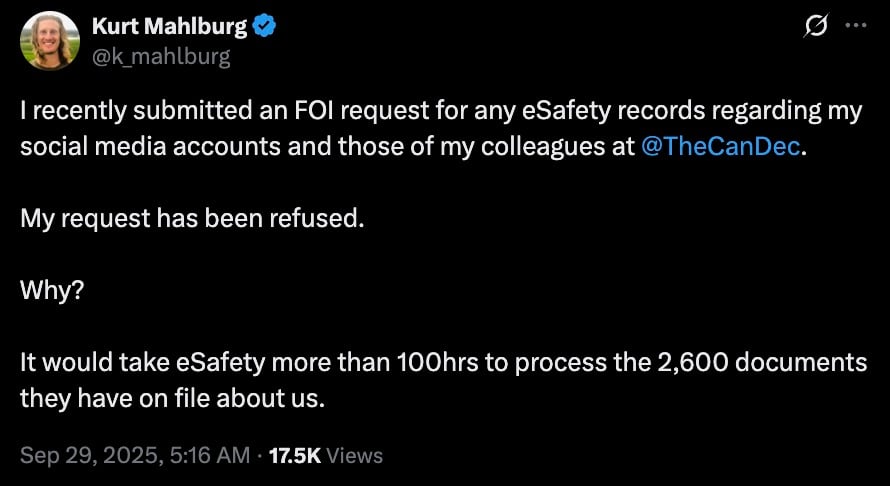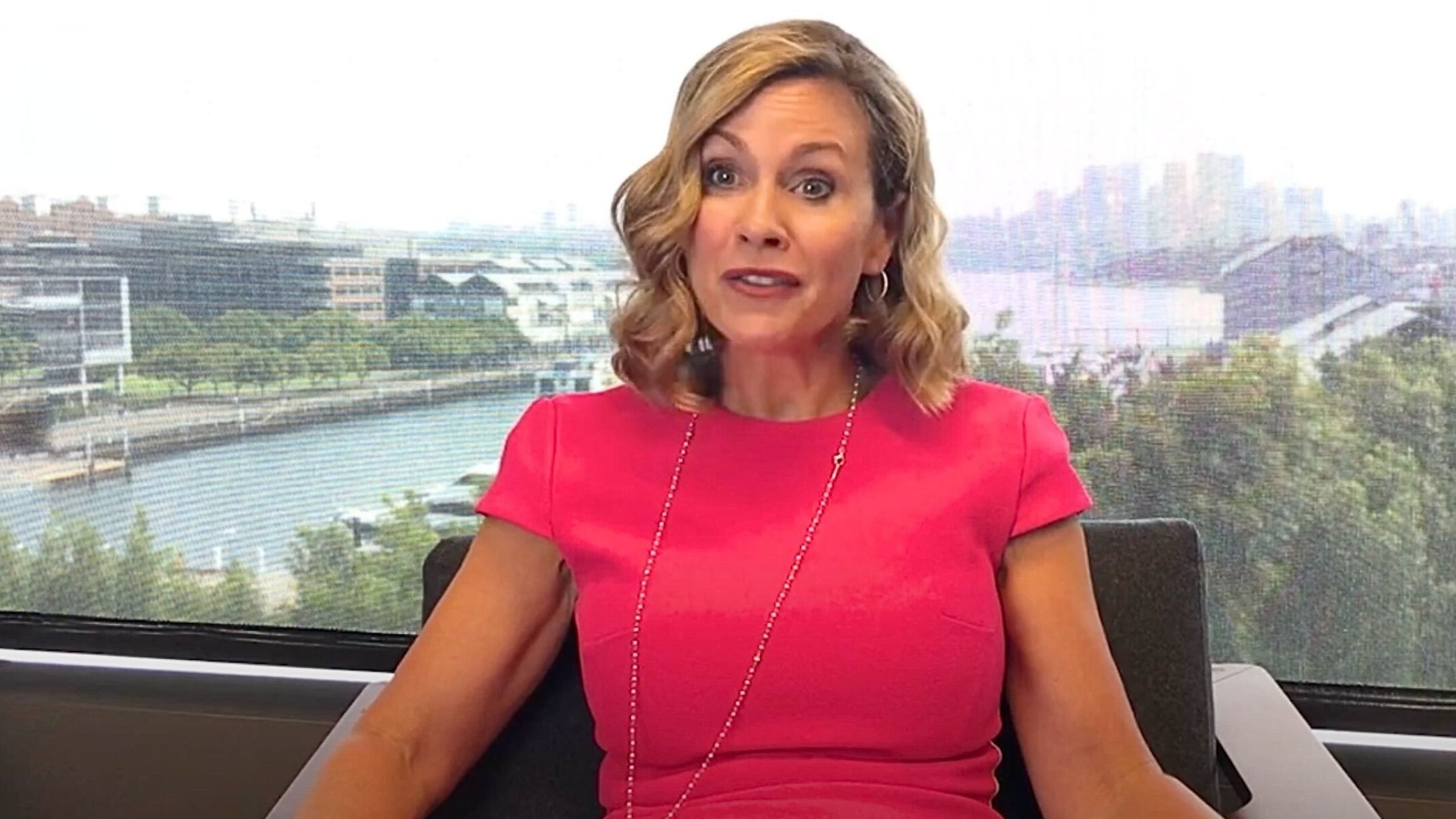Australia’s online safety regulator is refusing to process a Freedom of Information request that would expose how it has tracked the activity of a prominent Christian media outlet and its leaders, citing excessive workload as the reason for denial.
The office of eSafety Commissioner Julie Inman Grant has confirmed it is holding more than 2,600 records connected to The Daily Declaration, its founding body The Canberra Declaration, and three of its editorial figures: Warwick Marsh, Samuel Hartwich, and Kurt Mahlburg.
Despite admitting the existence of these records, the agency says reviewing them would take more than 100 hours and would therefore unreasonably impact its operations.
In a formal response dated 29 September, the regulator explained that it had identified thousands of documents referencing the group and its members. “Processing a request of this size would substantially impact eSafety’s operations,” the notice read.
The documents include media monitoring reports automatically generated whenever The Daily Declaration or its editors have posted online about the regulator or been tagged in relevant conversations.

Every mention gets captured by automated tracking tools, creating a growing pile of files that the agency now claims is too large to review.
After filtering for duplicates, around 650 documents were considered potentially relevant.
Yet the agency still refused, estimating that sorting and redacting them would consume over 100 hours. That figure triggers what the law defines as a “practical refusal,” giving agencies legal cover to reject the request altogether.
More: The Freedom of Information Act and How To Use It
Government departments are allowed to deny FOI requests if they consider them too broad or resource-heavy.
But in this case, the regulator’s own mass monitoring appears to be the reason it can now avoid public scrutiny.
A system that routinely generates digital records of online commentary is then used to block access to those very records, effectively protecting the agency from oversight.
Mahlburg, senior editor at The Daily Declaration, called out the move, saying, “The very mechanism designed to protect Australians ends up shielding the government from scrutiny.”
The Commissioner’s office has given a deadline of 13 October for the request to be narrowed.
If that does not happen, it will be treated as withdrawn, and none of the 2,600 documents will be released.
Suggested limitations include trimming the date range, excluding auto-generated reports, or focusing only on specific individuals.
Although The Daily Declaration has said it will resubmit the FOI request with a more restricted scope, the case raises broader concerns. The regulator has amassed a significant database tracking Christian organizations and individuals who speak on topics such as faith, freedom, and family.
By leaning on its own volume of monitoring data to block transparency, the agency sets a dangerous precedent.
While the public is told this is a matter of efficiency, the reality is that routine surveillance of dissenting voices is being shielded from exposure. The more the agency monitors, the easier it becomes to deny public access.










